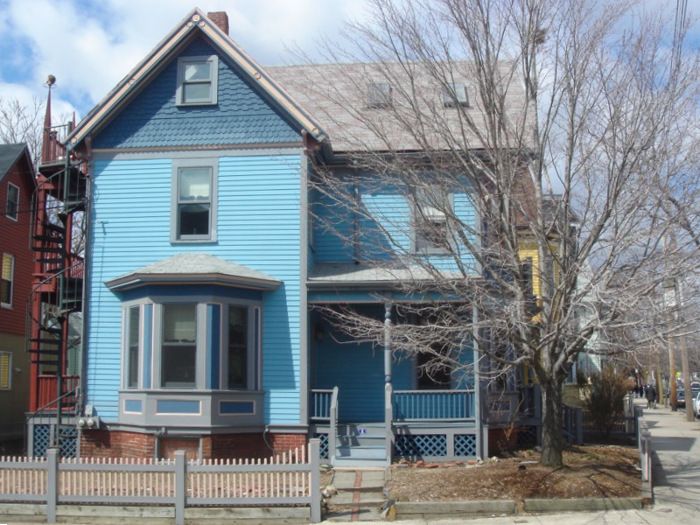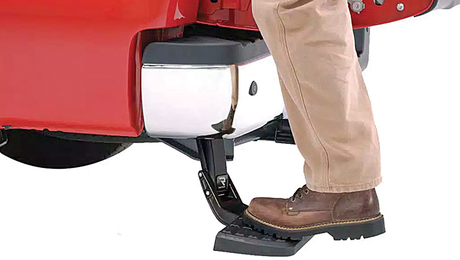
With the skills to handle the maintenance, builders are uniquely suited to profit from owning rental properties. Here are some tips for marketing a home to high-quality tenants
Builders can handle many renovations and repairs themselves, and a seasoned eye can spot potential winners in properties that others may have passed over. But finding and keeping quality tenants–people who pay on time and take good care of the rental–is essential for long-term profitability and peace of mind.
One-time cabinetmaker Rex Alexander and his wife Rochelle Molyneaux own several rentals in and around Fenton, Mich., both single-family homes and a mixed-use building with a storefront on the ground floor and apartments above it.
Molyneaux bought her first rental property 20 years ago, and while she thinks it’s the best investment she ever made, ownership has not been without its challenges. Alexander and Molyneaux recently shared some advice on how to get the right tenants in the door, and how to keep them there:
1. Make sure they can pay the rent
It may seem obvious, but one of the first steps is to make sure potential renters actually have the money to keep up their end of the bargain. “You’d be surprised at how many people come to rent and don’t really have enough money to make the rent payment every month,” Alexander says.
After listing properties with Craigslist, Molyneaux interviews prospective renters on the phone. Those who clear this initial hurdle are asked to sign a release allowing her to get a reference from a current employer, and one of the first questions she asks is how much the renter earns.
She had one unemployed hopeful offer to pay four months of rent up front in cash. The answer, Molyneaux says, was no: No job, no lease.
2. Credit checks tell only part of the story
Molyneaux says some landlords check credit reports of prospective renters, but she uses a tip she got long ago: check local utilities. If a renter is able to get a gas or electric utility account opened in his or her own name, chances are good the credit score is positive.
Even then, credit scores may tell an incomplete story. Familes with horrible credit ratings can still make good tenants. If they lost their house to foreclosure, the credit score will probably be in the basement, but the family might also be working conscientiously to regain their financial footing.
“A credit check isn’t always the way,” Molyneaux says, “because there are a lot of good tenants who have bad credit and are trying to get it back.”
Instead, Molyneaux and Alexander check references, not only the employer but the previous landlord as well. In her initial telephone conversation, Molyneaux tries to learn whether the renter has been forced to move, and if so, why. People who have had trouble at previous rentals, or are being evicted from a property, probably aren’t a good bet.
3. Minimize the risks
Landlords are required to follow state and federal anti-discrimination laws when renting their properties, but there are two types of people Alexander and Molyneaux automatically turn away: smokers and pet owners. Both represent unwanted risks to their properties.
Alexander is especially adamant about the dangers of smoking in older buildings, and pet damage can be expensive to fix when tenants have moved out.
But the pet rule is not iron-clad. A young couple with a 5-year-old child and an old dog wanted to rent one of the houses the couple owns. They weren’t going to part with the dog, and the family otherwise seemed ideal. “We decided we would go with the old dog rather that some of our other candidates,” Molyneaux says. They’ve had no regrets.
Alexander’s tip in reducing potential problems is to avoid garage disposals in rental units. They’re one of the biggest maintenance headaches in the business. “Toy cars, bottle caps, the whole nine yards” often end up going in, he says, so when given the chance Alexander removes the problem.
4. Structure the security deposit carefully
Landlords typically ask for the first month and last month’s rent in advance, the idea being that some upfront money can help cover any damage done to the rental after the tenant moves out.
But in reality, the tenant may simply not pay the last month’s rent on the lease, letting the deposit cover the rent instead of repairs.
Instead, Molyneaux collects a separate damage deposit unrelated to rent and tells the tenant he or she will get the money back when the lease expires providing the property is in good condition. The deposit may be something less than a month’s rent, but earmarking the money upfront means Alexander and Molyneaux won’t get stuck with repairs themselves.
5. Take good care of your tenants
Checking employers and previous landlords and excluding obvious risks help get the right people in the door. Keeping them there is just as important. The best tenants, Alexander and Molyneaux say, not only pay on time and treat the property with care but are willing to fix minor problems on their own.
When they have tenants like that, Molyneaux and Alexander may raise the rent occasionally–but not too much, even if the property rents for less than market price. It can be costly to prepare a rental for a new tenant, so having a dependable tenant in place pays better in the long run. “It all comes out in the wash,” Molyneaux says.
Good tenants are worth their weight in gold, Alexander says, and when he does get a trouble call he takes care of it promptly. “Even though you’ve got the hassle of eviction and maintenance, there’s a lot less stress than having your own cabinetmaking business,” he says. “I mean, this is a lot less stress than having someone’s bathroom or kitchen torn out.”
Fine Homebuilding Recommended Products
Fine Homebuilding receives a commission for items purchased through links on this site, including Amazon Associates and other affiliate advertising programs.

Reliable Crimp Connectors

8067 All-Weather Flashing Tape

Handy Heat Gun

Older homes in walkable neighborhoods can be good candidates for rental properties






















